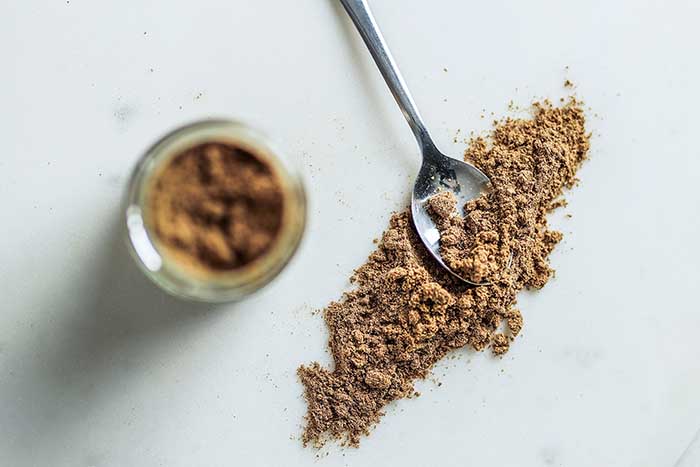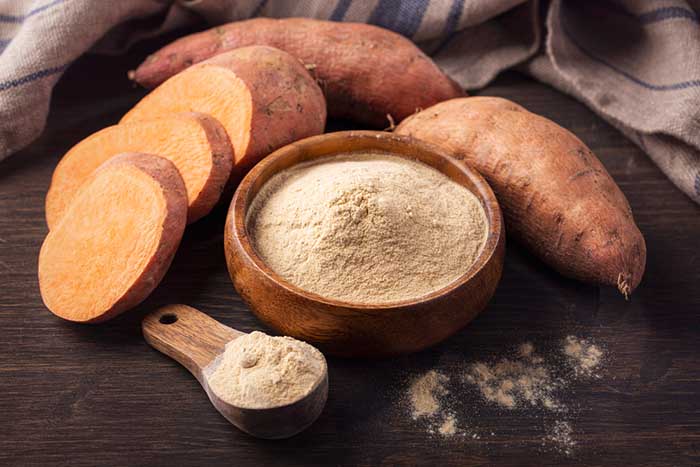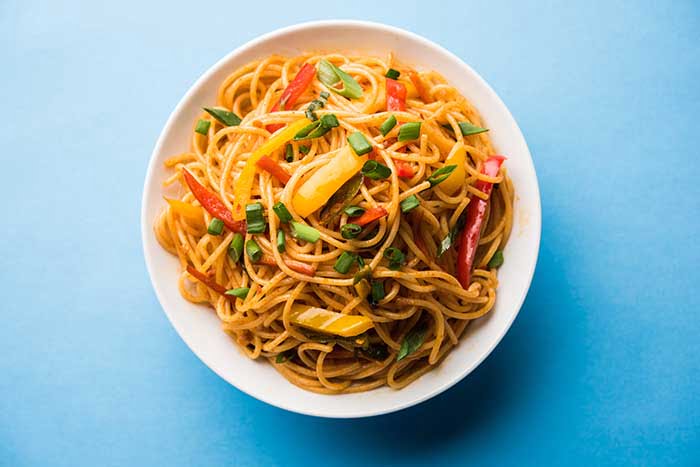Rice wine and rice vinegar are often confused in the kitchen. Learn the differences with our ingredient guide so you know when to use each one.
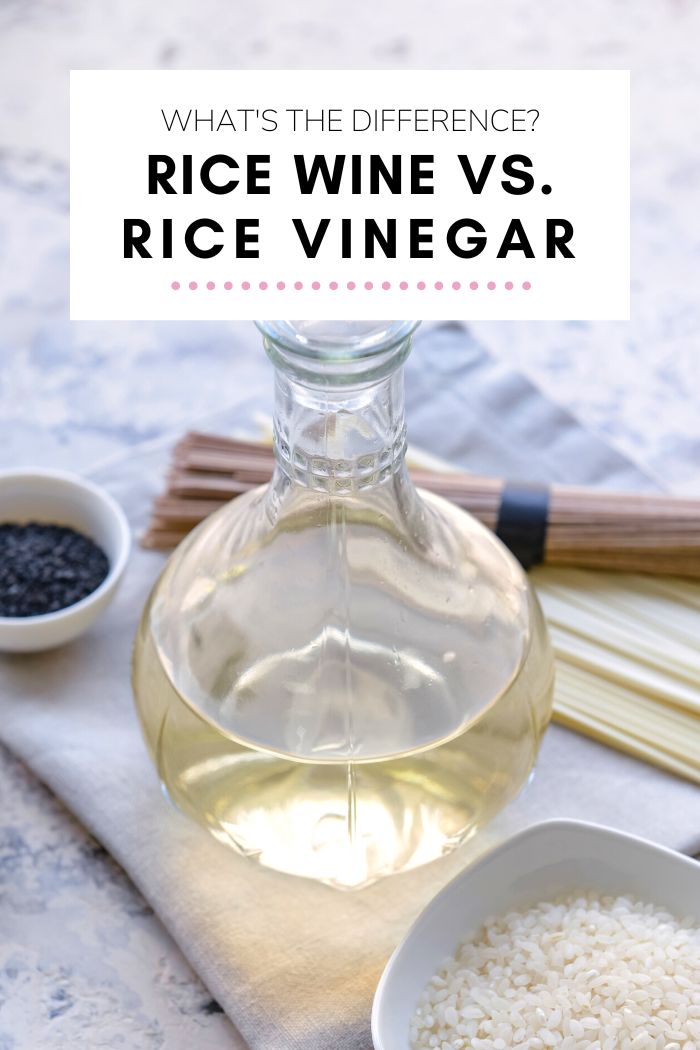
Rice wine and rice vinegar are two different types of alcohol used for cooking. Rice wine is an alcoholic beverage made from fermented rice, while rice vinegar is made from the fermentation of grain-based drinks like beer, cider, or sake.
So which one do you use? The answer to this question depends on what you’re cooking with it! Rice wine has a sweeter taste than rice vinegar, so if you want to add flavor to your dish without adding too much sugar, go for rice wine. If you need an acidic ingredient for your recipe instead, then pick up some rice vinegar at any grocery store near you!
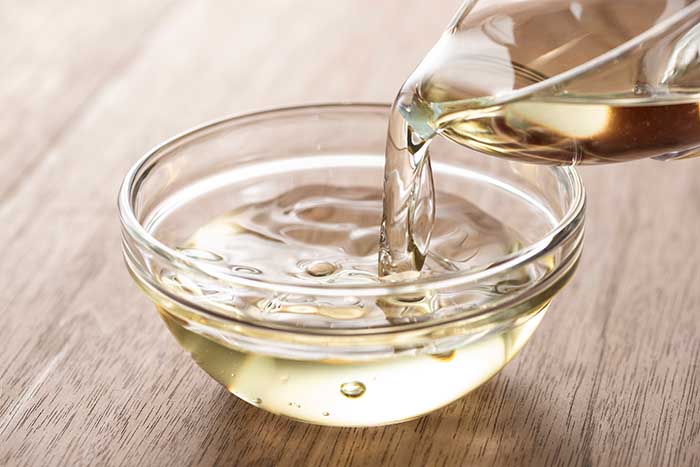
The Main Differences
- Rice wine is an alcoholic drink that can also be used for cooking, while rice vinegar is strictly for cooking and is typically used for sushi and marinades.
- Rice vinegar has an acidic taste, more than rice wine which is milder in flavor. As such, you cannot swap the two
- The two also differ in nutritional value. Rice wine has about 201 calories in 147 ml. Rice vinegar, on the other hand, will have about 30 calories in 15ml. This is especially true of sweetened rice vinegar. When it is unsweetened, rice vinegar has no calories. This is something worth considering when you are on a low-calorie diet.
These differences mean that you can’t use the two ingredients interchangeably. The two differ in flavor and alcohol content, so it is not wise to swap the two out for each other.
What is Rice Vinegar?
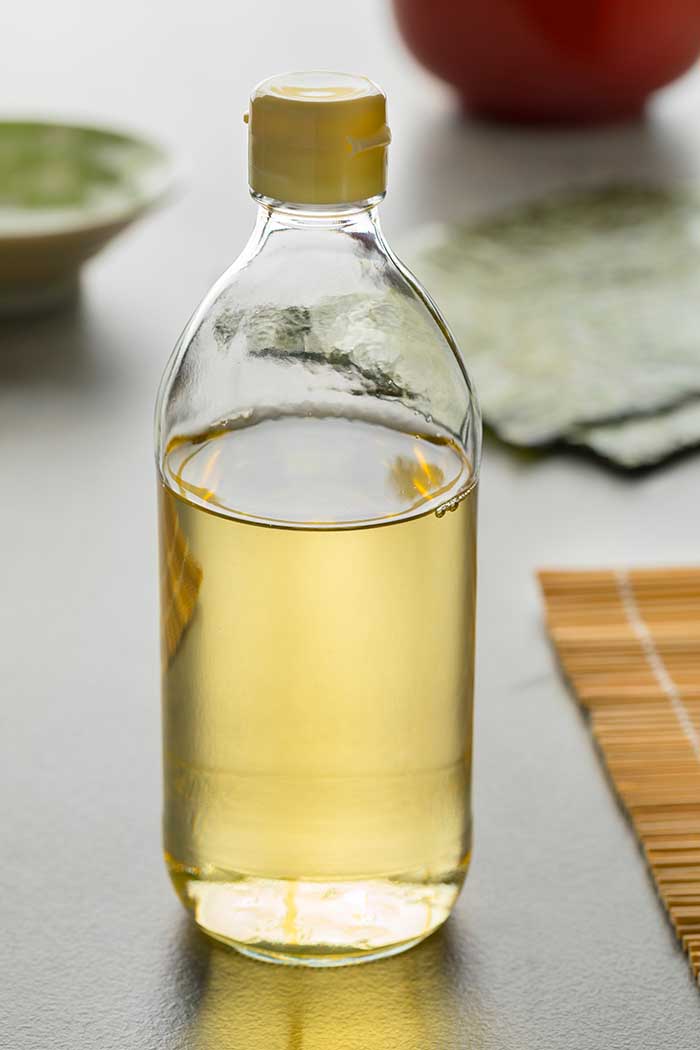
The confusion between rice vinegar and wine is that both are made from fermented rice. The difference lies in which part is used. Rice vinegar is made from the dregs of fermented rice. Like the ordinary household vinegar that you know, it is strong and cannot be taken independently. It is often used in recipes to be toned down so that its flavor is in the dish, but the tartness is cooked into the dish.
Taste and Aromas
Even though it is vinegar, it is not as tart or as sharp as white distilled vinegar. This is because it has low acidity. It is much sweeter and milder, making it great for many recipes. It has a tanginess and zing to add an extra kick to recipes such as pickles. The flavor is slightly sweet. If you know what apple cider vinegar tastes like, you are not too far off. The two are similar.
The sweetness is not only for the taste but also for the aroma. Rice vinegar is sweet even in the way that it smells. However, don’t expect a sharp sweetness. It’s more on the milder side. When compared to balsamic vinegar, it is not as distinct. You can also get seasoned vinegar, which will have a little extra oomph. However, when you use seasoned vinegar, be prepared to deal with the fact that it will not be as versatile.
Uses
Rice vinegar can be used in various recipes that require a savory sweet taste and aroma. As such, it works well on salads because it is mild and yet has a zing taste. It is also a lot for pickling.
As long as a recipe calls for light vinegar, you can use rice vinegar. You can also use it for stir-fries, homemade tamari, DIY soy sauce, or garlic purée. You can also use rice vinegar for homemade barbecue sauces, as well as sushi or as a marinade.
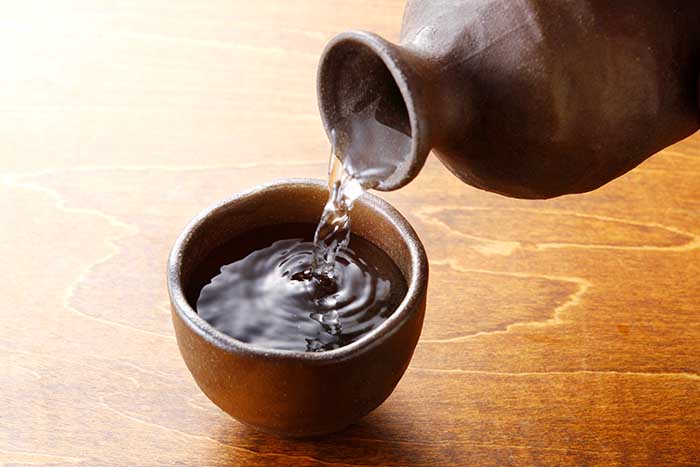
What is Rice Wine?
Rice wine, just like vinegar, is made from fermented rice. The main difference is that it is made from fermented glutinous rice. The sugar in the rice starch is turned into alcohol.
This is primarily because of the presence of yeast. Because of this, rice wine is alcoholic. It has a sweetness that it adds to marinades and whatever dish it is included in.
There are different varieties of rice wine, depending on how the wine is made, the length of time it is aged, and any additional ingredients. The alcohol level usually ranges between 18 and 25%.
Taste and Aromas
Rice wine has a sharp vinegar-like taste. The sweetness and spiciness blend well together and give dishes it is added to, a tang that would be missed if it is missing.
Even though it has high alcohol levels, it doesn’t smell like alcohol. The sweet acidity comes through in the aroma. So does the vinegar-like taste. The undertones of Chinese rice wine are nutty in flavor.
Uses
Rice wine is most associated with Asian cuisine, where it’s widely enjoyed in the form of alcohol. However, it can also be added to dishes to elevate their flavor, especially with homemade marinades.
You can use it to make dishes like three-cup chicken, red-cooked pork belly, as a condiment, in drunken chicken, in stir-fries, for braising, and also in stocks. When used in a marinade, it adds a tenderizing element. And when used in stir-fries, it adds an acidic kick.
Best Ingredient Substitutes
Rice vinegar
In place of rice vinegar, you can use apple cider vinegar with a 1-to-1 ratio. It has a mild, slightly acidic flavor that pairs well with sushi and marinades. You can also use sherry vinegar, which has a similar taste. White wine vinegar can be used in place of rice vinegar, vinaigrettes, and sauces.
Another substitute you can turn to is red wine vinegar which is excellent with marinades and rich meat recipes. You can also use balsamic vinegar in salads, baking, and when making pizza. Double the amount of lemon juice and use it in place of rice vinegar in salad dressings. You can also use champagne vinegar, which has a mild flavor that goes well with seafood dishes.
Rice wine
Instead of rice wine, you can use pale, dry sherry with a similar color and taste to mirin. Use equal amounts for the substitution. You can also use gin which is an alcoholic beverage with a similar flavor. The alcoholic content differs, so you may want to add according to taste. Start with a little and add as you go along.
Another alcoholic beverage you may use in place of rice wine is white wine. You may also use white grape juice or dry sherry and sugar. White grape juice is a good substitute if you’re looking for something non-alcoholic, but that will deliver a similar taste. You may squeeze a lemon into the grape juice to amp up the levels of acidity.

